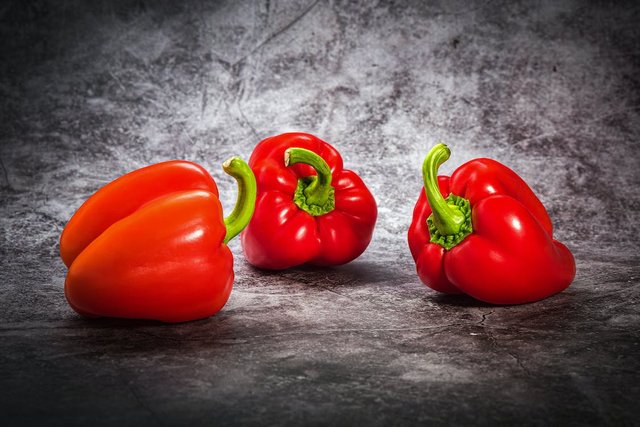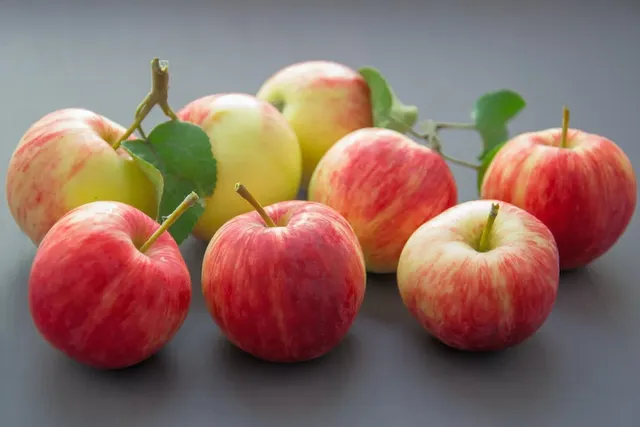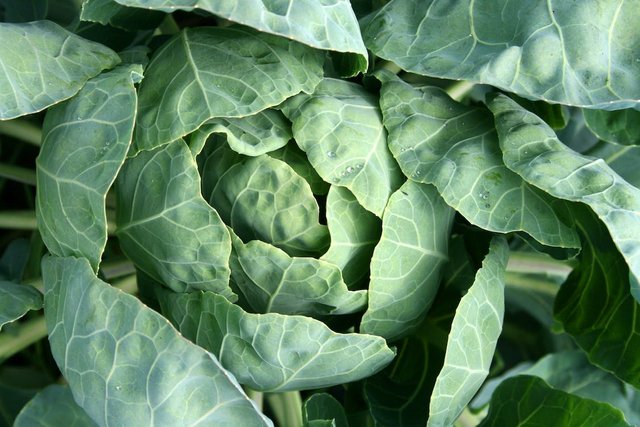Managing Chronic Kidney Disease with Fruits and Vegetables
Chronic Kidney Disease (CKD) is a condition characterized by the gradual loss of kidney function over time. A well-balanced diet is crucial for managing CKD and preserving kidney health.
Fruits and vegetables, while generally healthy, need to be chosen carefully to support kidney function. Here are three specific fruits and vegetables that can be particularly beneficial for individuals with CKD:
1.Red Bell Peppers:

Red bell peppers are an excellent choice for individuals with CKD due to their low potassium content and high nutritional value.
Low in Potassium: Red bell peppers are one of the few peppers that are low in potassium, making them suitable for people with CKD who need to monitor their potassium intake. High potassium levels can be harmful to kidney function.
Rich in Vitamin C: Red bell peppers are a great source of vitamin C, which is an antioxidant that can help protect the kidneys from oxidative stress. This can be especially important for individuals with CKD, as kidney function is often compromised in this condition.
Low in Sodium: Red bell peppers are naturally low in sodium, making them a heart-healthy choice. High blood pressure is a common complication of CKD, so reducing sodium intake is crucial.
Fiber: Red bell peppers contain dietary fiber, which can help with digestion and promote heart health.
Red bell peppers can be enjoyed in various ways, such as raw in salads, roasted, or grilled. They are a versatile vegetable that adds both flavor and nutrition to your meals.
2.Apples:

Apples are a kidney-friendly fruit that provides several health benefits for individuals with CKD.
Low in Potassium and Phosphorus: Apples are relatively low in both potassium and phosphorus, which are two minerals that individuals with CKD often need to limit in their diet to avoid overburdening the kidneys.
Fiber: Apples are an excellent source of dietary fiber, which can aid in digestion and help regulate blood sugar levels. This is important because CKD can lead to insulin resistance and diabetes.
Antioxidants: Apples contain antioxidants, including vitamin C and various phytochemicals, which can help protect the kidneys from oxidative damage.
Hydration: Apples have a high water content, which can contribute to overall hydration, another crucial aspect of kidney health.
To incorporate apples into your diet, consider eating them fresh as a snack, adding slices to oatmeal or yogurt, or using them in kidney-friendly desserts.
3.Cabbage:

Cabbage is a cruciferous vegetable that can be a valuable addition to the diet of individuals with CKD.
Low in Potassium and Phosphorus: Cabbage is naturally low in potassium and phosphorus, making it a kidney-friendly choice. It can be used as a substitute for higher potassium vegetables like broccoli and spinach.
Rich in Vitamin K: Vitamin K, found in cabbage, plays a role in blood clotting and bone health. While individuals with CKD need to monitor vitamin K intake, moderate consumption of vitamin K-rich foods like cabbage can be part of a balanced diet.
Anti-Inflammatory: Cabbage contains anti-inflammatory compounds that may help reduce inflammation in the body, which can be beneficial for individuals with CKD as inflammation is common in this condition.
Digestive Health: The fiber in cabbage can promote digestive health and regular bowel movements, which can be important for individuals with CKD.
Cabbage can be enjoyed in various dishes, such as coleslaw, stir-fries, or as a side dish. It's a versatile vegetable that can be prepared in numerous ways to suit your taste.
While these fruits and vegetables can be beneficial for individuals with CKD, it's essential to consult with a healthcare provider or a registered dietitian to create a personalized dietary plan that meets your specific needs and stage of CKD. A comprehensive approach to managing CKD includes not only nutrition but also medication management, monitoring kidney function, and lifestyle adjustments.
Read More: https://sites.google.com/view/wellness-for-your-health